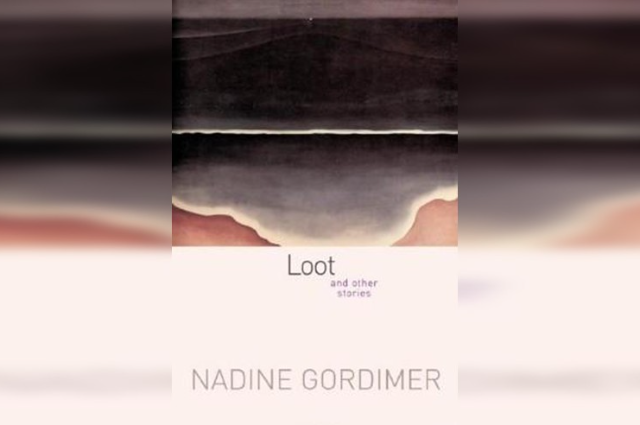Ecocriticism is a theory that investigates the relationship between humans and the natural world in literature. It deals with how environmental issues and man's attitude towards nature are portrayed and analysed in literature. Ecocriticism is also called as environmental literary criticism, green studies and ecopoetics.
The short story “Loot” presents the conflict between human world and natural world in a state of calamity and disaster. The opening of the short story sets the setting of the events amidst an earthquake. This may symbolize the anger and reaction of nature towards a greedy, capitalist and materialistic society. While an earthquake in the sea-bed usually causes great waves of Tsunami, here contrarily, the ocean has drawn back inwards exposing the various objects that had been drowned before. The things listed symbolise the advancement in technology - TVs, computers, dishwashers etc this exposing how technology has lead to environmental degradation.
The greed of people is portrayed as Gordimer writes how the “People rushed to take,take, take” from the mass of things that were lying on the sea bed. There was not a single human who was worried about fishes or other sea creatures. All they could see was the material heap of destruction from which they could amass further objects. This shows how the environment presented here is “anthropocentric”, a concept in Ecocriticism that portrays how superiority is attributed to humans and how nature is seen as an entity that is meant to serve humans. This attitude had resulted in huge disaster but the indifference of humans towards nature remained the same. This act is nothing different than looting- Gordimer uses this word as her title to signify the extent to which human greed can result in a potential to plunder nature just to satiate their materialistic greed. The sea expresses its anger as it swallows the looters.
Another character in the short story is the old man who lives isolated from others in a villa on the hills. The description of his villa shows his materialism and capitalistic attitude. He had a cook who made food for him daily with whom he did not have any other communication. This relationship with the cook is one of a master and laborer, reflecting how the relationship between man and nature is also that of master and servant - depicting the concept of Capitalism.
The old man collects a mirror from the sea bed. This mirror symbolises his greed for possession but the waves swallow him too, indicating how nature can also destroy humans. The old man is not different from the other villagers who did not even care about anything else but material things. Nobody bothered about the environmental repercussions of the earthquake or the plight of the sea creatures. Nature's way of punishment for such apathy and greed is evident as every looter is drowned in the sea. In the end, nature has proven to be more powerful than humans.
The last line of the short story is an allusion to Shakespeare’ s Tempest which again means ‘storm’ alluding to the scene where Ariel, a sea nymph sings “Full fathom five” referring to Ferdinand’s father who lay five fathoms or thirty feet under water. This signifies how the looters of Gordimer’s story lie drowned under the sea.

